4 Great Ways to Build Listening Comprehension
What Is Listening Comprehension?
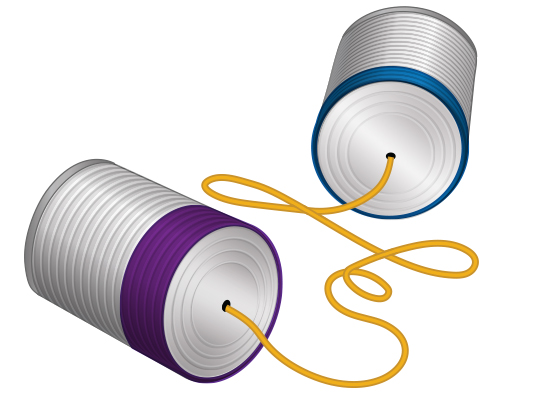
Listening comprehension is the precursor to reading comprehension, so it’s an important skill to develop. Listening comprehension isn’t just hearing what is said—it is the ability to understand the words and relate to them in some way.
For example, when you hear a story read aloud, good listening comprehension skills enable you to understand the story, remember it, discuss it, and even retell it in your own words. You use these same comprehension skills when you read.
How Listening Comprehension Develops
Listening comprehension begins at a young age as babies interact with people around them. It develops as they are read to and as they engage in conversation with their parents. Tone of voice, pauses between words, where the emphasis is placed in a sentence, and the rhythm and pattern of speech all have an impact on the meaning of the words being spoken and the message they are meant to convey.
In the All About Reading Pre-reading program, we foster listening comprehension by discussing stories and characters, expanding vocabulary, and exposing children to a wide variety of listening experiences. In addition, through the poetry in our books, The Zigzag Zebra and Lizard Lou, and through the read-alouds, children absorb language patterns that are not used as frequently in normal conversation, but that are commonly used in books.
In grade school, reading comprehension generally lags behind listening comprehension, so the best way for a child to develop higher levels of comprehension is through non-print sources (read-alouds, discussions, movies, and so on). Even after a child learns to read, listening comprehension continues to be important.
In the All About Reading program, we intentionally develop listening comprehension through story discussions, vocabulary development, and read-alouds. In this way, kids grow in their knowledge of the world, absorb language structure, and make connections between old and new information.

4 Fantastic Ways to Develop Listening Comprehension
In addition to the activities built into All About Reading, you can help your child develop listening comprehension skills by engaging in the activities below on a regular basis.

Play Fun Games
Play listening skills games such as Mashed Potatoes. This silly game will provide your child with important listening practice and plenty of giggles, too! Hebanz is another great game that will help build listening skills in a way the whole family can enjoy.
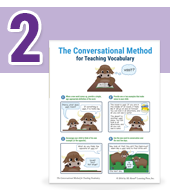
Talk to Your Child
If your child doesn’t understand what words mean, comprehension isn’t possible. The Conversational Method for Teaching Vocabulary is simply talking with your child and expanding upon vocabulary words that he has not yet learned.
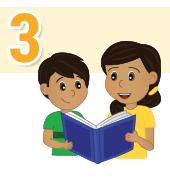
Make Reading Aloud Interactive
Read lots of picture books aloud to your child. But don’t just read! You can help your child’s listening skills by turning reading into an interactive activity.
Here are a few ideas:
- Briefly explain unfamiliar words and situations to help your child build comprehension.
- Invite your child to make predictions. “What do you think will happen next?”
- Encourage your child to retell the story (or an exciting part of the story) to family members. Meal times are often a good time for retelling stories.
- Need book suggestions? Download our extensive list.
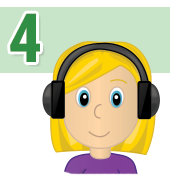
Listen to Audio Books Together
Listening to audio books is another great “read-aloud” activity that provides ample opportunities for building listening skills. As you listen to a story together, react to the story, laugh at the funny parts, and express surprise or fear at the appropriate moments.
Listening Comprehension Is One of the Big Five Skills
Listening comprehension is one of the five critical skills for reading readiness that we call the Big Five Skills. The other four skills are:
If you’re ready to tackle the rest of the Big Five Skills, be sure to check out the All About Reading Pre-reading program. Your student will enjoy special games, crafts, and story time read-alouds, and you will love the way your student effortlessly learns essential pre-reading skills.
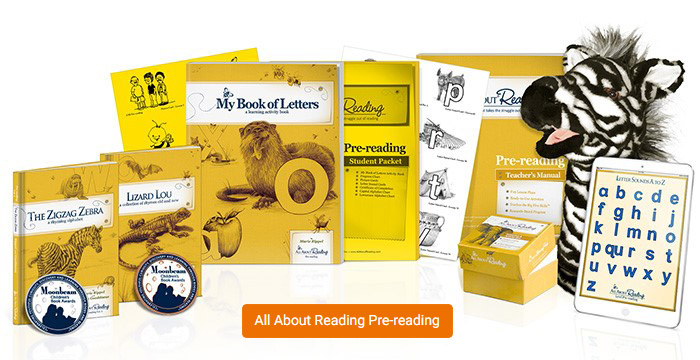
Do you have any questions about listening comprehension? Post in the comments below!




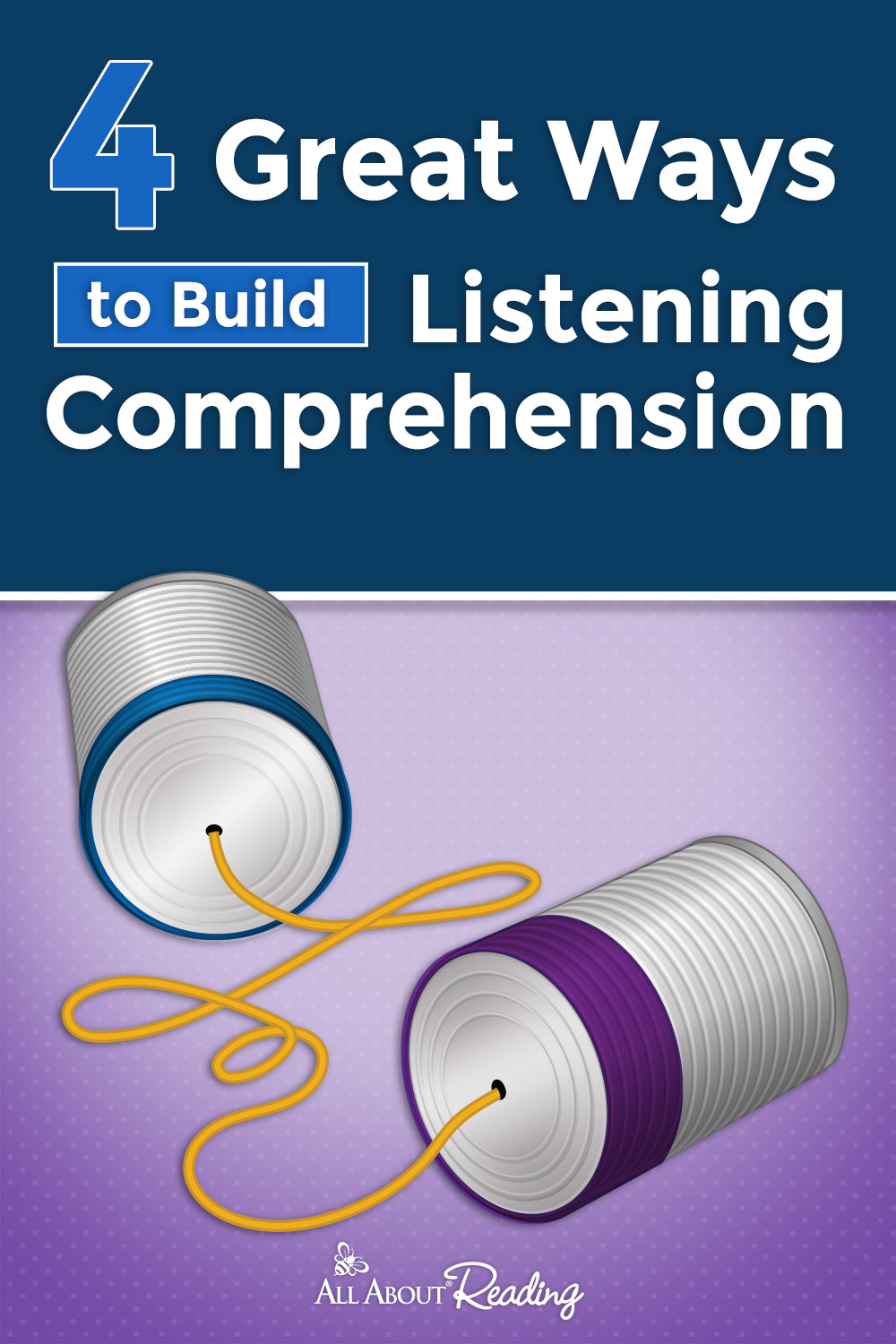



Lhayilla
says:I can’t find when it was published:<
Robin
says: Customer ServiceLhayilla,
This blog post was published on Aug 22, 2022.
ELADIO ANTONIO CAPELLAN
says:This is an amazing program that teaches a lot of important topics such as listening comprehension.
Robin
says: Customer ServiceThank you, Eladio!
Enas Ashraf
says:Which is true about listening comprehension
1-It involves both top-down and bottom -upprocessing.
2-It’s rarely improved by a second listening of the same material.
3- It relues on the same sub skills of skimming and scanning as reading.
Robin
says: Customer ServiceThank you for this, Enas.
Yusuf Omolayo
says:What year did Marie Rippel write the article on 4 great ways to build listening Comprehension.
Robin
says: Customer ServiceYusuf,
This 4 Great Ways to Build Listening Comprehension blog post was first published on 5 June 2018, although it has been revised since then.
Is there anything else I can help you with?
Chris Y.
says:Hey, I work with kids ESE kids in the public school system. I will be working with students from Kdg. to fourth grade. Some verbal and some non-verbal. Do you have a discount if buying all 4 levels of the program?
Robin
says: Customer ServiceThank you for checking, Chris.
We are not currently offering any discounts for purchasing multiple levels at one time, although we are having promotion for 50% off our new Something Fishy review book with the purchase of a level of All About Reading.
We do run periodic specials and promotions. You can see announcements about current promotions in our weekly email (sign-up for our newsletter) and on our social media platforms. You can also check our
ge to stay current on our promotions!
Also, be sure to check out our monthly giveaway and our Free Resources page.
Is there anything else I can help you with?
Patricia A Powell
says:Tell me more about listening and comprehensive for a head start give me an example
Cindy
says:What would be the steps to develop listening comprehension in a 6 year old with a Childhood Autism Rating Scale in the severe range?
Robin
says: Customer ServiceCindy,
Have you spoken with the child’s therapist or special education teacher? I would expect someone with more extensive experience teaching severely autistic children would be of the most help.
If the child engages with books, they can be very beneficial for building listening comprehension. With a child that struggles with listening comprehension, you will need to start with very simple books with no more than a sentence per page. Reading aloud daily, very slowly building up to more complex books, can be very effective for developing listening comprehension.
Brooke Taufaasau
says:Great ideas! Thank you!!
Robin E.
says: Customer ServiceYou’re welcome, Brooke!
Lyndsey Martinez
says:This is very helpful!!!!!
Robin E.
says: Customer ServiceThank you, Lyndsey! I’m glad this was so helpful for you.
Anna
says:It is always a plus to gamify learning!
Robin E.
says: Customer ServiceWe agree, Anna!
Trisha
says:Interesting topic, thank you for sharing :)
Robin E.
says: Customer ServiceYou’re welcome, Trisha.
Stephanie Abney
says:Thank you for this comprehensive and doable program. The emails and blog posts are very helpful. Cheers!
Robin E.
says: Customer ServiceThank you, Stephanie. It’s great to hear that the emails and blog posts are helpful!
Tamara Lowrey
says:Great suggestions. I’m going to try to make our read-alouds more interactive by asking my child to predict what happens next.
Robin E.
says: Customer ServiceI’d love to hear how it goes, Tamara!
Michelle
says:Excellent article about listening comprehension.
Robin E.
says: Customer ServiceThank you, Michelle.
Stephanie
says:Great post!
Danielle McNish
says:There is definitely an art and science to developing reading skills in children, but lots of options to do so.
Stephanie Karijanto
says:Thank you for this! Good to know that I’m in the right path. I used to avoid audio books, now I will use it with my son.
Robin E.
says: Customer ServiceI’m glad this was helpful for you, Stephanie! Audiobooks are a great option.
Stephanie
says:Thanks for the suggestions! You always provide simple and practical ways to implement teaching new skills!
Robin E.
says: Customer ServiceThank you, Stephanie!
Tara Brown
says:I love that this post focuses on listening skills! I sometimes feel like these types of skills are thrown to the side, but like everything else, kids need to learn how to listen and practice often, so they improve over time. Thank you so much! Great post!! :-)
Robin E.
says: Customer ServiceThank you, Tara! Yes, listening skills are so important and too often overlooked.
Deena
says:Thanks for the comprehension tips. I’m looking forward to using this curriculum this year!
Bryn Hottman
says:I love the games from All About Reading. My kids’ reading really does improve after playing them a few times. Thanks for providing them for free!
Robin E.
says: Customer ServiceYou are so welcome, Bryn! Thank you for letting us know that games like these are helpful for your kids!
Shelby
says:These are wonderful tips! My struggling reader has come leaps and bounds with this program!
Sally dunham
says:This is a great idea, I think my grandchildren will learn a little easier and be able to comprehend. Thank you
Kori Villegas
says:These are great ideas! My child is not a lover of reading and I’m hoping this program encourages her to read more.
Sara Miles
says:Thank you so much! I use this program with my son and it is wonderful!
Violet Hershberger
says:When a student really listens with their heart, it makes teaching way more effective!
Elizabeth
says:I have been using Explode the Code for our Resource Level two interventions. All About Reading looks as though it would be a better fit. I am excited to study the program and begin a test group.
Robin E.
says: Customer ServiceSounds wonderful, Elizabeth! Let me know if you have questions or need more information. We’re happy to help! You may find our 12 Reasons Teachers Love All About Reading and All About Spelling informative. It includes downloadable assessment forms that can be very helpful.
Alicia
says:Thank you so much for these tips! Will be using them with my littles.
Robin E.
says: Customer ServiceYou’re welcome, Alicia! I hope you find them very helpful.
Marisol Perez
says:Thanks for the tip! I was not aware of the importance of this in reading.
Robin E.
says: Customer ServiceYou’re welcome, Marisol, and I’m glad this article helped you learn something new!
Jace
says:Such great ideas! Can’t wait to try them.
Robin E.
says: Customer ServiceThank you, Jace! I’d love to hear how things go after you try them out.